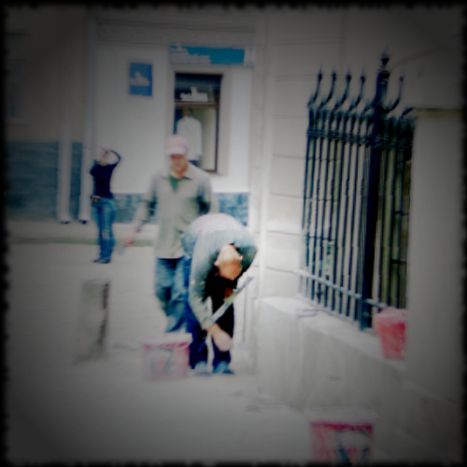
Ukraine 'don't want to be Europe's neighbours'
Published on
Ukraine accepts the aid it receives from the EU, but does not want to be considered a country merely situated 'close' to Europe. After events in South Ossetia and the EU-Ukraine summit on 10 September, the EU should give Ukraine a clear perspective of membership. Perspective
'It could at least be called the European Union's neighbourhood policy,' stresses the deputy head of the embassy of Ukraine to the European Union, Konstyantin Yelisieyev, to EU journalists. Like Lithuania, Ukraine claims to have the geographic centre of Europe in its territory. Their state doesn't still need to 'go towards Europe'; they never withdrew in terms of culture, mentality and lifestyle. Are Ukrainians, who think they have been in Europe all along, ready to be in the EU?
Humans, not pigs
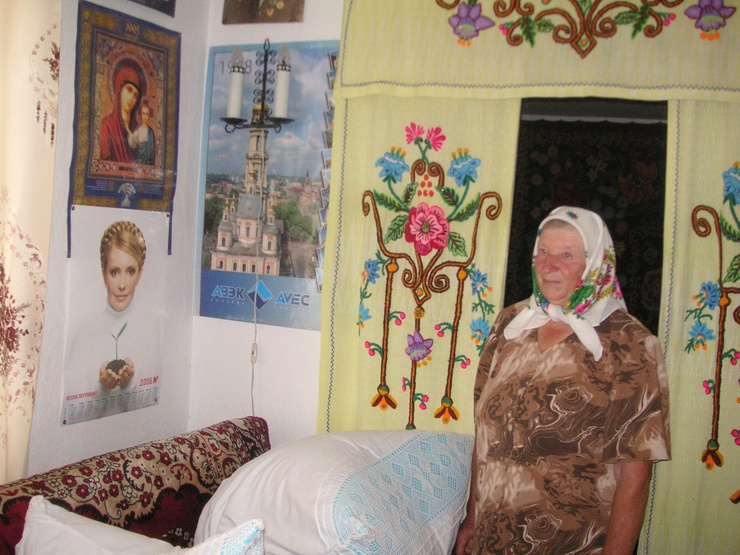
The issues that divide Ukrainian society and politicians is the understanding of what should be the optimal speed of the reforms. Nataliya Prokopovich, a member of the political party 'Our Ukraine', is convinced that every political force applies its own content to EU-integration. After the president issued a decree in June 2007, parliament resumed lapsed operations for a week to pass the legislation related to WTO membership and EU-integration. Politicians worked, having pushed aside their quarrels.
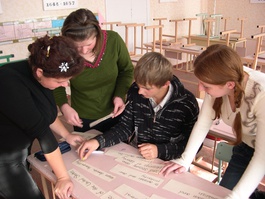 As a middle-aged Kiev-based pharmacist says, the EU is first and foremost associated with order. 'It's important to be humans, not pigs, to work and earn money; it's essential that everything is clear,' he explains, after calling his concept of order 'German'. Two 21- and 22-year olds from Kiev say that although they were not interested in politics, they would vote in favour of EU accession were there a referendum. They associate the EU with broader opportunities. The young Ukrainians would gladly go to earn money in other member states but necessarily come back.
As a middle-aged Kiev-based pharmacist says, the EU is first and foremost associated with order. 'It's important to be humans, not pigs, to work and earn money; it's essential that everything is clear,' he explains, after calling his concept of order 'German'. Two 21- and 22-year olds from Kiev say that although they were not interested in politics, they would vote in favour of EU accession were there a referendum. They associate the EU with broader opportunities. The young Ukrainians would gladly go to earn money in other member states but necessarily come back.
Champagne, butter and chocolate
A 2002 law adjusted Ukrainian legislation to the legal framework of the EU, but the inter-parliamentary coordination council started working even earlier. There is a European integration committee in parliament. From car manufacturing to education, the country attempts to do its homework. The application of EU standards in Ukraine, which has not received a promise of membership even for the distant future, is a phenomenon not unique to Ukraine. The Financial Times says that EU laws are stricter, enabling businesses to feel secure: if they manage it with the EU, they will satisfy everyone. EU neighbours such as Switzerland, Norway, the Balkans and regions in North Africa and eastern Europe do not have much choice; transferring EU legislation is the only available means to facilitate trade.
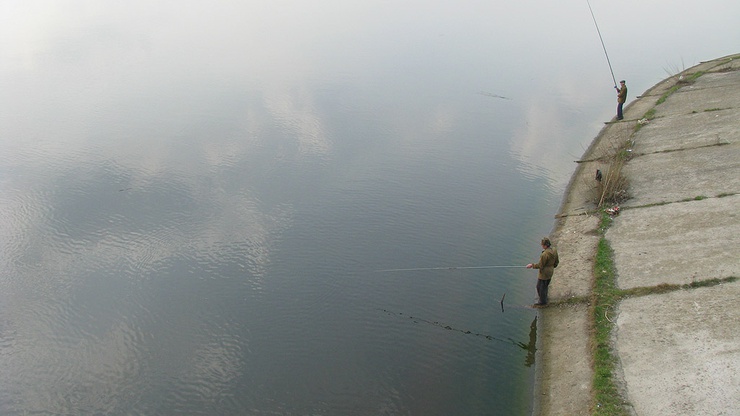
A lot may been done in the aviation, industry and agriculture sectors of the Ukrainian economy. But upon entering the huge Bessarabian market in the very heart of Kiev, one can see chunks of meat displayed on tables. Everyone can buy cigarettes off the streets – in some places they are sold one by one, unpacked. One colleague has never seen a taximeter. The taxi has neither a light nor a chequered stripe. While adjusting to EU standards, the Ukrainians will still have to learn what can be rightly called champagne, butter and chocolate – just as Lithuanians had to do recently enough. People in Ukraine are still used to count their salaries and other large sums in dollars – not euros and not even grivnas. Other larger, more systematic and EU-stressed problems are corruption, lack of transparency and traditionally close connections to Russia. 'No state can have a customs union with two economic units if they are not in customs union with each other,' EU officials say.
Need time
For many Ukrainians, the EU neighbourhood policy does not imply equal treatment. The EU's doubts over deeper inter-relation is a question of personal dignity. Konstyantin Yelisieyev remembers a young musical ensemble being forced to sing in front of one of the EU member state's embassy for hours, to convince the diplomats that young festivalgoers are not terrorists or potential illegal immigrants.
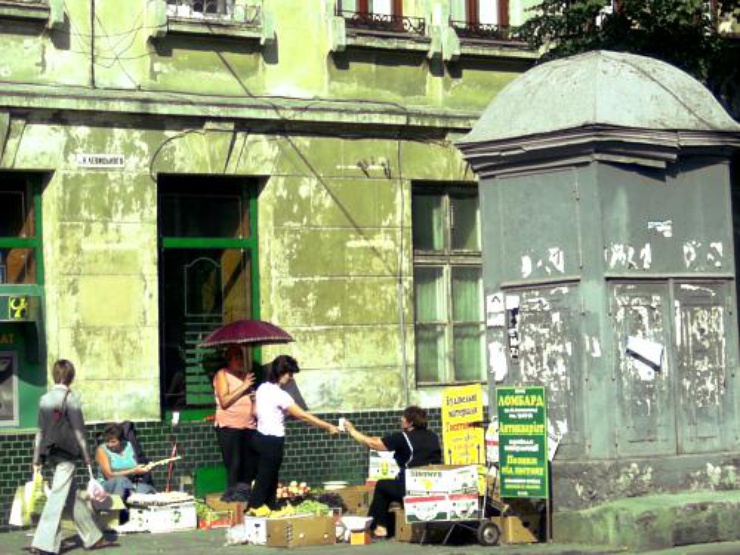
On the other hand, citizens of all EU states, except the member states which acceded in 2007, can travel to Ukraine without visas. Even now, people heading off to sign contracts with their European colleagues are denied visas.There already is an agreement for students, scientists and business people to follow a simplified procedure. However, it is left to each member state to decide how to implement it. On the other hand, it is true that the difficult and often humiliating procedure for submitting an entrance application should become simpler in the near future for some Ukrainians at least.
Ukraine does not want to be the new periphery of Europe
Ukrainian officials admit that their country needs time to be considered one that belongs. Only now diplomats, politicians and journalists are getting rid of the habit of using the name Ukraine with the definite article, thus stressing, as it is claimed, the literal meaning of the country's name in Old Slavic – 'the edge'. Patriotic linguists would like to achieve that the traditional grammatical form 'on Ukraine' is dropped in favour of the general 'in Ukraine' in Russian. Unhappy with its constant status as the edge, Ukraine does not want to be the new periphery of Europe.
The author's trip to Kiev was organised by the European Journalism Centre along with the Association of Journalist Initiatives in Ukraine. This is an abridged translation of an article first published in Lithuania's 'Atgimimas' weekly in 2007



